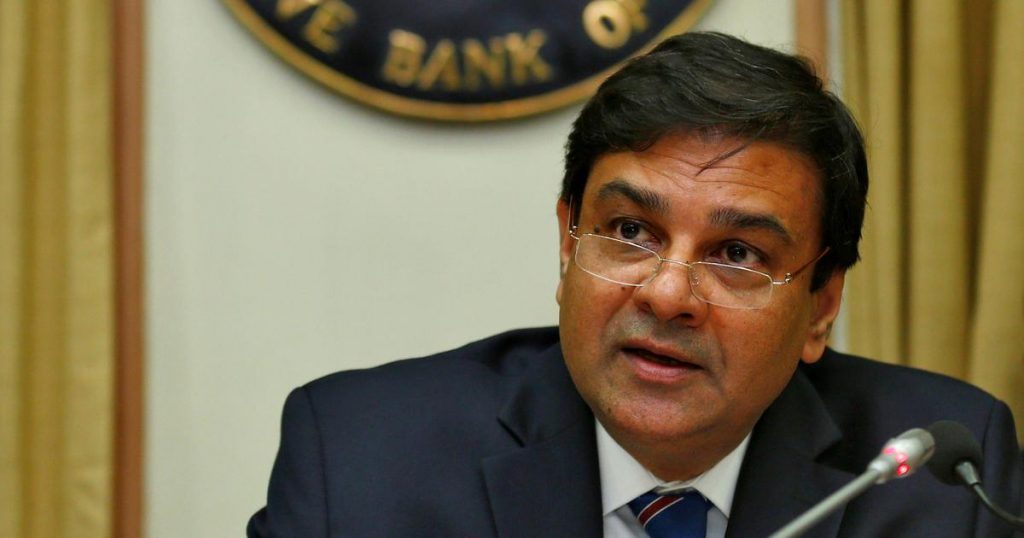Former RBI governor, Urjit Patel, has suddenly felt the need to explain the context in which he abruptly quit the post he held for less than three years, by end 2018. Patel has cited differences he had with the Modi government over handling of Non-Performing Assets (NPAs) or bad loans. This is a critical issue hanging round the neck of India’s Public Sector Banks (PSBs) for the past several years. Even granted that governments cannot look at matters of economy or banking loans purely from an economist’s point of view, it is imperative that both sides adhere to the fundamentals of good banking practices.
Patel cites in his book, ‘Overdraft: Saving the Indian Saver’ some situations that led to the present critical times in the banking sector. Notably, he refers to the pre-2014 UPA period as a time when the “government did not question risk controls in government banks (GBs)” even as it received significant dividends. He notes that a number of GBs did not have senior management in place, too much of bureaucratic inertia and political meddling. “Places on the banks’ boards of directors had become sinecures to be handed out to political supporters of the ruling party,” he has stated. It may be noted that Patel himself was a creation of a similar situation where the BJP brought him in as a substitute for Raghuram Rajan who did not wish to play ball in the time leading up to Demonetization.
Patel, coming from a well known corporate background, was a simple pawn in the hands of the Modi government. He may claim some credit for actions like the cleaning up of the bank books during his tenure, which exposed the extent of bad loans in the system — of the order of Rs 10lakh crore. However, these events may have played out because of earlier steps taken by Raghuram Rajan and other officials and also because of Demonetization. Patel claims a governmental insistence, apparently from then finance minister-in-charge Piyush Goel, that loans cannot be arithmetically classified as NPAs at the end of 90 days, was among the reasons why he quit his job.
The foreboding about the state of India’s banking system is there for all to see even if the common man cannot understand all the nuances. The banks, both public and private, are in a terrible state of health principally due to poor management and a pile of bad loans. A collapse of the banking sector would mean a virtual collapse of the Indian economy – and the signs of a disaster for the nation have been visible for quite some time now.
Governmental steps to restore the health of the banking system have not been of much help under the two terms of the NDA government. It has taken some steps to check the dangerous drift in the banking sector, but they are proving to be too little, too late. The latest attempt too, to merge PSBs – a process that is already under way in phases – might not produce the desired results. The worse is perhaps yet to come. There is tangible fear that while handing over the PSBs to private players, the government may retain a high percentage of the deposits. While this would inject great amounts of much needed cash into the government’s pockets, it would also under-value the banks on the basis of the deposits not being there. In return, the government may expect the new owners to manipulate the books and keep the system going without actual assets in cash.
Massive resort to risk-taking by American banks, free-wheeling loan-taking with less repayments, and a downturn in sub-prime lending market, led to the bankruptcy of Lehman Brothers in September 2008. That had initially hurt the US economy. Later, this took on the form of a global economic crisis or Great Recession, cited as the worst since the Great Depression of the 1930s.
The Covid-19 spread resulting in a lockdown of the nation, in full and in parts over a quarter of the fiscal, with no end in sight yet, would mean a massive hit to the national economy. This will have a huge adverse impact on the banking system, with more of bad debt piling up. Almost every industrial and commercial unit is in ruins. They all operate not by investors’ money but with loans taken from banks. With the sharp downturn in business, many more business establishments are likely to default, and will be less prepared to repay their EMIs. With massive job losses and salary cuts, the EMIs from individual loanees too are bound to fall foul. How the banking sector – and the national economy – faces this situation is a scary thought.
It is people like Urjit Patel who, by their silence and Yesmanship, have wreaked the most damage on the Indian economy. The nation has not forgotten how he lorded over and messed up the Reserve Bank of India during the Nov 2016 Demonetization that broke the economic spine of this nation. His present opinions would have been truly appreciated had he spoken this kind of truth while in that powerful post. Now, he is irrelevant.
